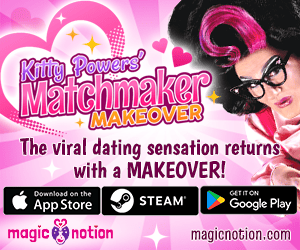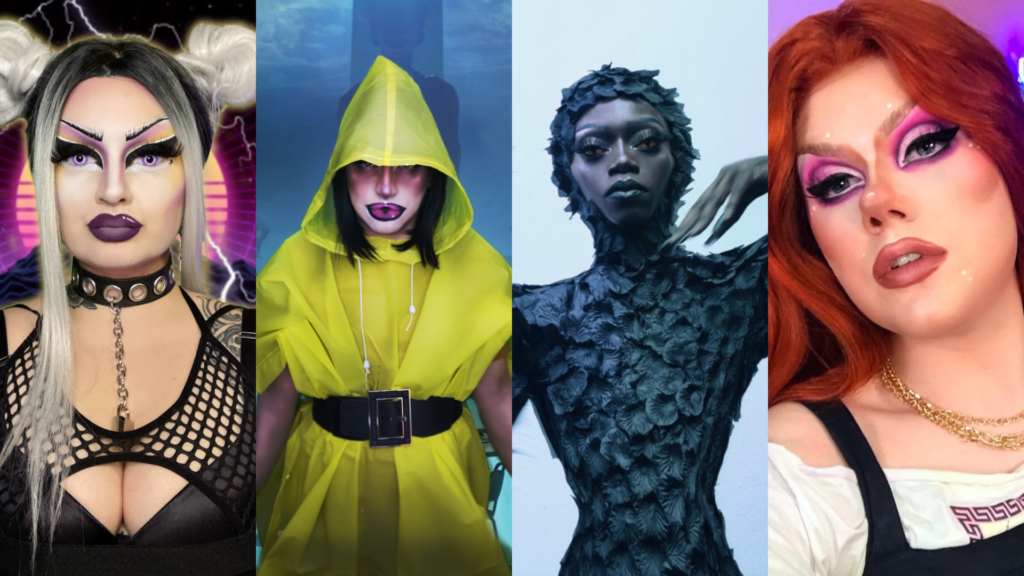
Serving gaming realness: what could a good drag-inspired game be like?
During the last decade, drag has crept its way into mainstream popular culture. Well, perhaps it’s more accurate to suggest that the versions of drag celebrated on RuPaul’s Drag Race have entered public consciousness. The globally syndicated reality competition show, which searches for the next drag superstar, has catapulted its stars’ careers into major films, West End theatre productions, and questionable music ventures.
Due to its ability to significantly bolster the star potential of its contestants, the self-proclaimed ‘Olympics of Drag’ is often viewed by the show’s contestants and applicants as the golden ticket to drag superstardom. Viewing the show as a singular route to financial success and accruing cultural capital has had the knock-on effect of homogenizing popular concepts of what drag actually is—in short, if a particular strain of drag isn’t given the stamp of approval by RuPaul and co, then it won’t be legitimized by the influential Drag Race platform.
The reality is that multitudes of drag expression and performance are not featured on Drag Race. There are as many styles of drag as there are drag performers, and one television franchise cannot (and should not) have authority over what is and what is not considered palatable drag, no matter how entertaining and brilliantly crafted that show is. Despite its ongoing successes in mainstreaming its favoured types of drag and placing them in various entertainment avenues, it seems that a successful crossover into video games remains elusive.
That isn’t to say that the Drag Race franchise hasn’t tried. In addition to an upcoming mobile game releasing in late 2021, fans have already been ‘treated’ to 2013’s RuPaul’s Drag Race: Dragopolis, a pachinko-style arcade game released for mobile systems. In this game, developed by So Much Drama Studios, players are tasked with recovering iconic drag memorabilia stolen by the evil queen Apocalypstik.
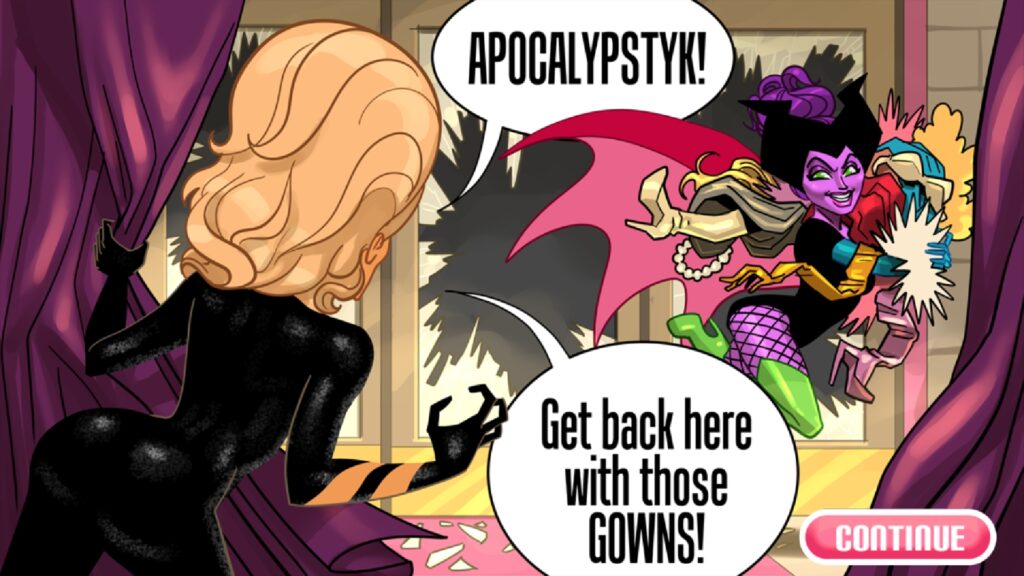
To be blunt, Dragopolis is not a good game. The graphics are garish, the voice recordings of recognisable Drag Race contestants are of varying quality, and gameplay is repetitive. Having been released eight years ago, it’s understandable that Dragopolis now feels antiquated, but some flaws are timeless. The main bugbear in Dragopolis is that the experience doesn’t utilise drag to inform gameplay. Instead, Drag Race intellectual property and queer aesthetics are lazily slapped onto a basic arcade game template like a wonky eyelash haphazardly glued on an unblended mug.
This begs the question: what would a genuinely compelling video game featuring drag look like? To gain some insight on this matter, I posed this question to four drag performers who have a penchant for gaming and virtuality.
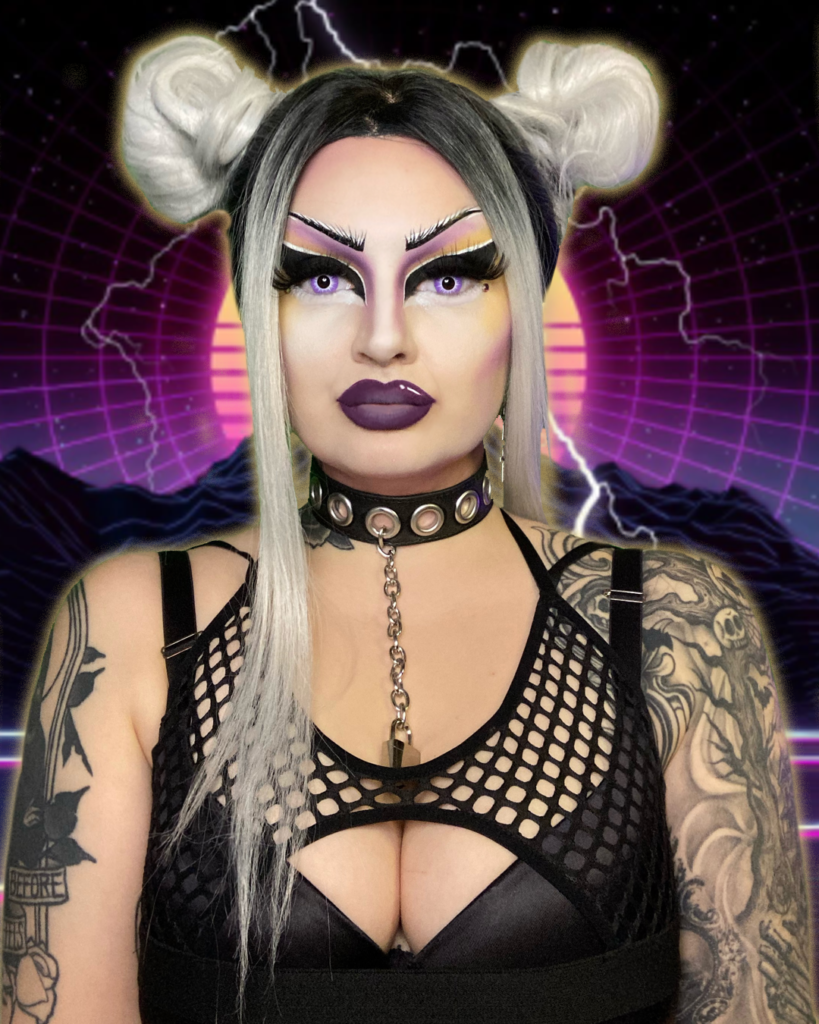
I first talked to Mynxie, a self-described ‘Chainsaw Femme’ who can be found in London’s alternative cabaret scene or on her Twitch gaming streams. In a game about drag, she would like to see a clear sense of exaggeration. ‘Drag queens are basically huge characters in themselves, so any kind of character-based game could work depending on the personalities of the drags.’ When thinking about how her character could be inserted into a game, Mynxie believes she is ‘a bit of a villain of sorts, so [she]’d probably make a good boss in a more cartoonish type game.’
Games of all varieties feature campy, exaggerated characters, but the exaggeration shouldn’t solely be located in a drag performer’s looks. Mynxie makes it clear that she wouldn’t want a game that focuses on makeovers or lipsyncs, but would rather witness drag characters in more fantastical scenarios. For instance, she suggests that her character could have some ‘cool outfits in a Tekken/Street Fighter kind of scenario.’ Drag could be used to kick ass, both figuratively and literally.
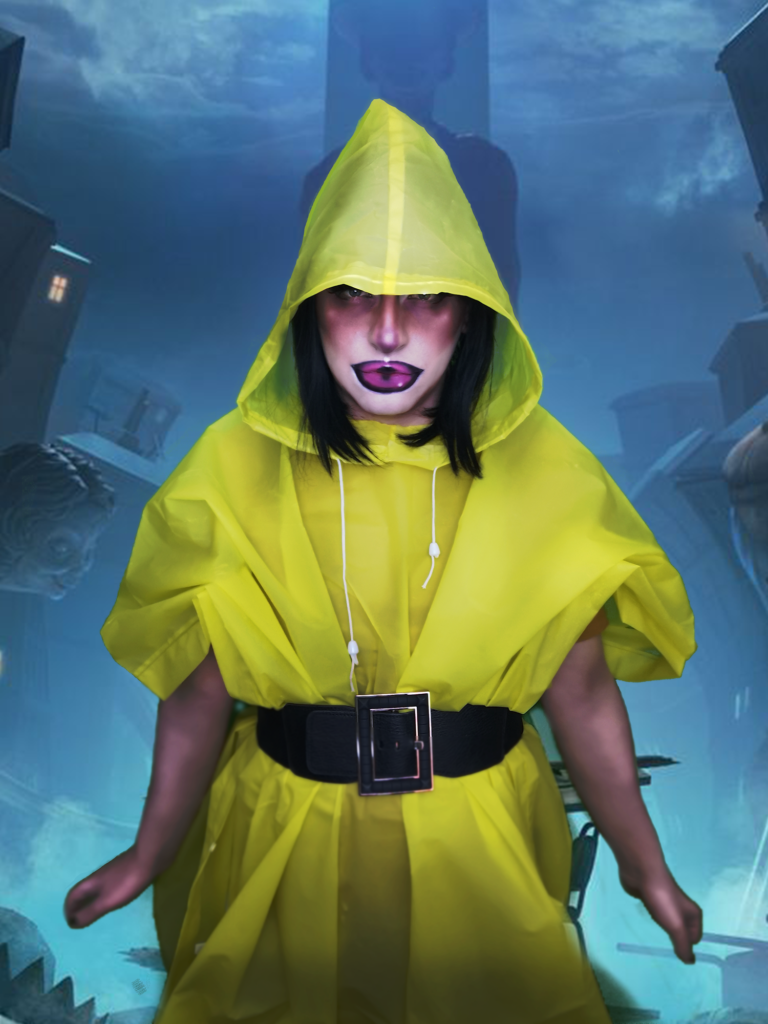
Eevolicious, a Portuguese ‘Chaotic Magical Girl’ who frequently streams on Twitch also believes that existing game templates can be reinvigorated by positioning drag characters and their fabulous looks front and centre (something which Dragopolis doesn’t deliver). In particular, she would ‘love to have a drag queen character running around in high heels with the greatest looks’ in Dead by Daylight, a game which could only be improved by featuring a drag queen serial killer.
Additionally, Eevolicious also believes that games have the unique ability to present compelling stories about drag and gender identity. ‘I would love to see Drag being represented as a way for a transgender character to express themselves, as there’s so many stories like that.’ For Eevolicious, drag is incredibly personal, and exploring the transformative and introspective aspects of drag would deepen a gaming experience.
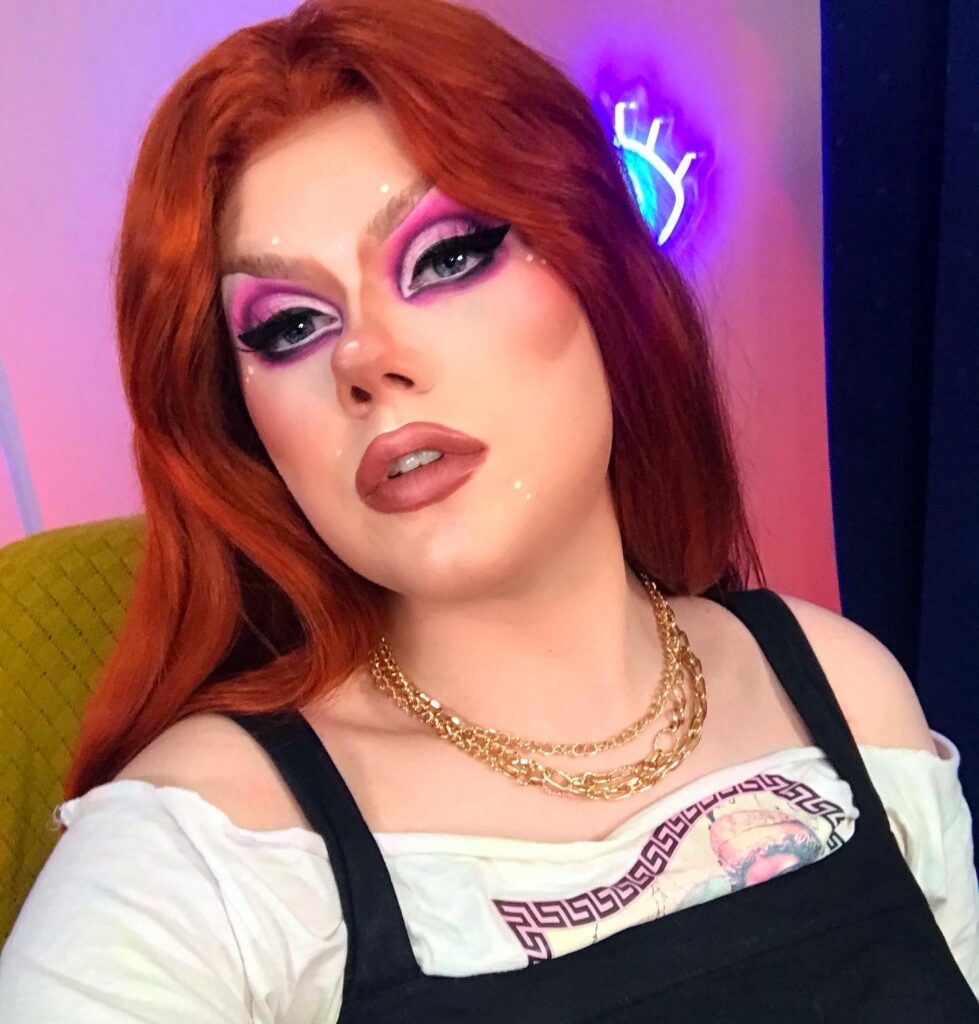
Dona Tarte, the Dublin-based ‘Queen of Baking’, shares this sentiment, emphasising that ‘anyone can do drag.’ Much in the same way that gaming is for everyone regardless of gender or sexuality, drag, too, is open to all and this could be explored through a game intersecting drag and real-world issues. For Dona, the game could examine ‘love, identity, careers, and pride,’ among other themes.
To accurately realise this ambition, Dona argues that it is essential for the game to be conceived and developed in a way that is respectful to queer people and drag artists. In particular, she hopes that such a game would be informed by ‘a tonne of research to make sure everyone is represented well,’ to avoid depending on negative terms, stereotypes, or prejudices.

The drag performers I spoke to believe that video games can be particularly illuminating for audiences who don’t know much about drag. Black Peppa, a Birmingham-based queen who has been experimenting with virtual aesthetics in her ‘Virtual Doll: The Future of Drag’ series, wants to see a game that revolves around holistically developing a performer’s career through a multitude of skills. ‘I’d love to see a build-up of the character, through makeup styles, hair and wigs, costumes…’ Black Peppa says, intimating a breadth of skills that can be developed through gameplay.
Black Peppa’s game would not just hone in on drag artistry, but also incorporate entrepreneurial aspects. Part of their ideal game would involve booking gigs and negotiating finances. This would add a resource-based challenge to the game, and would help ‘someone who isn’t a drag queen see how much work goes into drag.’
These four performers have unveiled a remarkable variety of ludic ideas suggesting that a compelling drag game is feasible, so long as care and attention to the intricacies of the artform are considered. In fact, there is scope for a range of drag-based video games to be developed, ranging from those based on the real world (such as an open-world RPG dealing with a performer’s personal life and career aspirations) or the more fantastical (like a side-scrolling, glammed out beat ‘em up).
I believe the main takeaway from these conversations is that decentralising RuPaul’s Drag Race from these hypothetical drag games would likely be beneficial. No shade to the franchise, but configuring reality TV’s magic into video games rarely works as intended, and Drag Race is no exception. Similar to how there is so much more to video games than just mainstream triple-A titles, the world of drag is not confined to what audiences see on RuPaul’s Drag Race.

